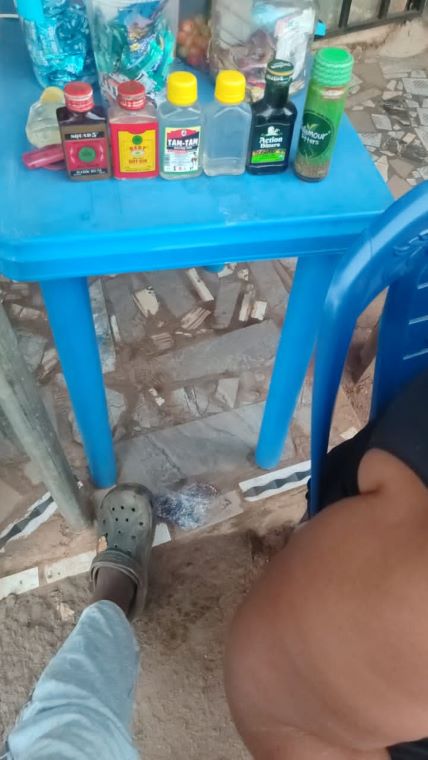Some of the items banned on display | Image: Kina Onyinye A
.Says it runs against progressive alternatives agreed by stakeholders
By Valentine Amanze
The Manufacturers Association of Nigeria (MAN) has expressed concern over the National Agency for Food and Drug Administration and Control’s (NAFDAC) ban on the production and sale of sachet alcoholic beverages and small PET bottles with effect from December 31, 2025.
The directive followed a resolution said to have been passed by the Senate at its sitting on Thursday November 6, 2025.
MAN, via its Director General, Segun Ajayi-Kadir, lamented that that the ban was dissonant to all stakeholders’ efforts on the matter and completely at variance with the subsisting position of the House of Representatives on the same matter.
It added that the earlier directive for a one-year extension by the Ministry of Health, which culminated into the consideration and validation of the draft National Alcohol Policy by stakeholders should have been considered before any major official pronouncement by another arm of the government.
“We also believe that a stakeholders’ consultation, either through a public hearing or focused meetings with relevant stakeholders in the alcohol beverages industry, should have been called by the relevant Senate Committee before a ban is ordered.
“This was the route that was painstakingly followed by the House of Representatives in the recent past,” it stated.
It said that the ban on alcohol in sachets and small PET bottles were resolved by an enlarged Committee comprising all the stakeholders and NAFDAC representatives, who validated the National Alcohol Policy in October 2025 with the following key recommendations:
• Multi-sectoral action plans.
• Tightening of enforcement by law enforcement agencies.
• Establishment of licensed liquor stores/outlets in Local Government Areas across the country.
• Increase in monitoring and compliance checks by NAFDAC, FCCPC and others to ensure strict product quality in terms of content and safety.
• Ensuring regulatory bodies place more emphasis on regulation, monitoring and enlightenment campaigns to educate stakeholders and the general public on the dangers of underage consumption of alcohol and its sales in motor parks.
• Enlightenment campaigns to be carried out in secondary schools across the country to educate students on dangers and vices associated with the abuse of alcohol.
“We would like to place on record that the unfounded and untested statement of abuse by minors, has been dismissed by several empirical research that were independently conducted by the government.
Also read: Why we back NAFDAC’s sachet alcoholic eaverages’ ban, by NHED, CAPPA
“The industry has even gone further, notwithstanding the report of the surveys, to initiate series of campaigns in respect of responsible alcohol consumption in order to discourage underage abuse.
“These campaigns have necessitated an industry spend of over a billion Naira in advertisements at all levels of media outreach across the federation and has been very impactful in discouraging abuse by under-age persons,” MAN stated.
It therefore stated that the reported directive by the Senate for an outright ban was unfair and against the run of play in the industry, given the fact that the upper chamber appears only to have considered the opinion of NAFDAC, who necessarily, was part of the validation that was organised by the agency’s supervisory Ministry, the Ministry of Health.
“It is our position that NAFDAC should have presented its opinion to the Committee and the Ministry during the validation, rather than by-passing these processes and opting to approach the National Assembly without giving other stakeholders the opportunity to be consulted or to respond,” MAN lamented.
“This pronouncement, which we believe is counterproductive and forebodes economic dislocation of significant proportions for the nation at this period, will have serious consequences for the now stabilizing economy for the following reasons:
• Loss of over N1.9 trillion investment, largely by the indigenous Nigerian companies;
• consequential mass retrenchment of over 500,000 direct employees and approximately 5 million indirect through contracts, marketing and other logistics;
• reduction in capacity utilization in manufacturing, which in recent quarters begun to gradually improve on account of the industry’s contribution as a component of food and beverages sector; and
• loss of indigenous businesses that may gradually obliterate local entrepreneurship development in the economy.”
………….
For more interesting stories, click: nigerianewsflight.com.ng












